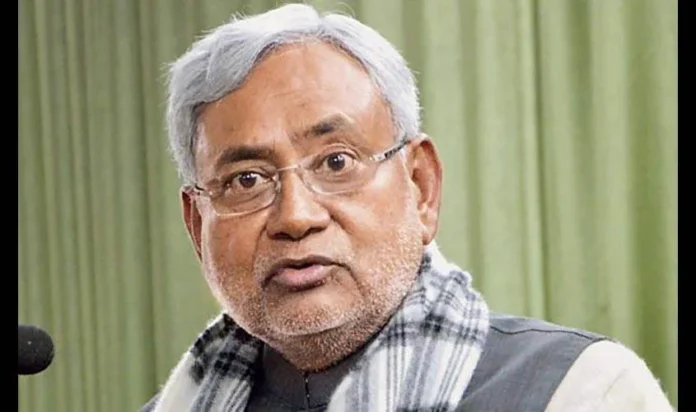EW News Desk:
In the politically charged landscape of Bihar, Chief Minister Nitish Kumar finds himself once again at the helm of a controversial initiative – a house-to-house survey on public sentiment regarding the state’s seven-year-old prohibition on alcohol. While Kumar maintains that the survey won’t influence the ban’s status, the move has sparked debate on the practicality and motives behind such an exercise.
The timing of this survey, following closely on the heels of a caste survey, raises eyebrows. It is evident that Kumar, a seasoned politician, is navigating the political waters with strategic moves. However, the decision to gauge public opinion on prohibition, a policy that has been in place for seven years, seems, to some, a futile endeavor that strains the state’s already limited resources.
From a pragmatic standpoint, critics argue that this survey is a waste of time, effort, and much-needed finances for a cash-strapped government. However, politically, prohibition remains an emotive issue, particularly among women in Bihar. Kumar’s attempt to gauge public sentiment may be more about understanding the pulse of the electorate than reconsidering the existing ban.
The approach to addressing excessive alcohol consumption is pivotal. Bihar’s model, treating it primarily as a law and order issue, stands in stark contrast to Kerala’s approach, which views it as a health problem. The consequences of Bihar’s prohibition are stark – an upsurge in illicit liquor trade, a surge in criminal cases, a concerning number of hooch-related deaths, estimated job losses, and a significant dent in revenue.
Bihar’s fiscal health is a cause for concern, with only 26% of government resources generated within the state, one of the lowest ratios in India. The ban on alcohol sales, though aimed at curbing social issues related to excessive drinking, has inadvertently led to a loss of revenue, exacerbating the state’s economic challenges.
The critics argue that Kumar’s policy of prohibition has, in essence, thrown the baby out with the bathwater. The collateral damage includes a thriving illicit liquor mafia, a burden of legal cases, a spike in hooch-related fatalities, substantial job losses, and a notable revenue deficit. The critique raises questions about the efficacy of the policy in addressing the root causes of alcohol-related issues.
Drawing a sharp contrast, Kerala’s approach to alcohol-related challenges involves targeted programs funded by the state’s resources. The focus is on creating awareness about the ills of excessive drinking and addressing the health and societal impacts of alcoholism. Unlike Bihar, Kerala treats alcoholism as a health issue and not merely a law and order problem.
Frankly speaking, Nitish Kumar’s persistence with prohibition appears to be more about political posturing than a genuine commitment to addressing the complexities of alcohol-related issues. The article calls for a re-evaluation of the approach, advocating for a more nuanced and pragmatic strategy that addresses the root causes without sacrificing economic viability and revenue generation. Nitish Kumar’s shrewd political maneuvering may secure short-term gains, but the long-term consequences of a flawed policy must be reckoned with


